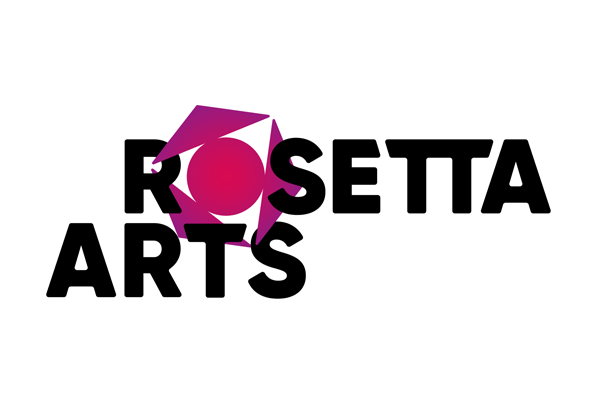Interview with Sanaz Amidi about Rosetta Arts, a community based hub for art and creative learning in the heart of east London
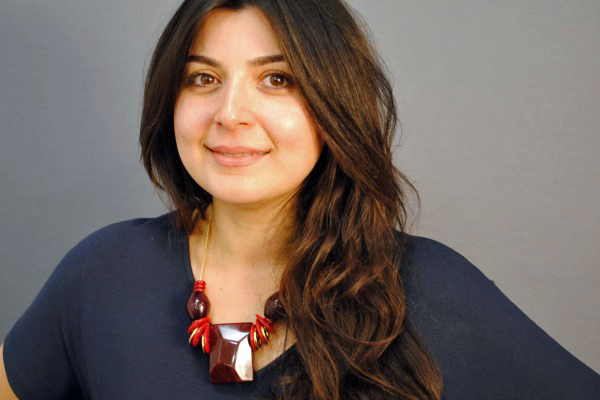
Sanaz Amidi, Rosetta Arts, CEO
"I have learned that my values of passion, drive, integrity, courage and empathy are the tools with which I work with people to collectively implement and achieve transformational change."
You’ve been CEO and Trustee at Rosetta Arts since 2007. What’s the purpose of the charity and how do you see your role there?
Rosetta Arts changes communities through creativity.
From our visual arts learning centre and gallery in West Ham we offer creative courses, projects, events and exhibitions to the diverse people of Newham who otherwise have little access to the transformative benefits of the arts.
What we offer is so much more than simply access to the arts. We offer every person we encounter a chance to live the life they choose – whether that’s pursuing a career or education in the arts, having a personal passion, feeling emotionally and socially confident, or feeling connected to the people and communities around them.My ambition is to make sure that the work that we do, the work in opening people’s imaginations, in making the arts accessible, in making it possible for people who may not want to work in the arts but who want to have their voices heard, who want to say things that directly affect them – voices that you would not hear under normal circumstances – ensuring that those voices are heard.
Essentially, my role focuses on shaping, empowering and leading excellent people and teams to do this. I believe that our success stems from setting a clear vision and sharing a set of goals to which people can aspire and commit. I have learned that my values of passion, drive, integrity, courage and empathy are the tools with which I work with people to collectively implement and achieve transformational change.
What was it about the ethos of the organisation that first attracted you to become involved?
Our start 28 years ago was in a school called Rosetta in Canning Town and was because of an amazing woman with an extraordinary vision for art education called Yvonne Humble. She’s the one who really set our goal of opening up the arts to people in Newham. She’s the one who, in Rosetta, took under her wing a young local boy called Lee, tutored and mentored him to develop his skills and portfolio and then wrote his reference supporting his application to CSM. Lee went on to become known worldwide as Alexander McQueen! In 2021 we are very proud that those nurturing values are still rooted in everything we do, underpinning the development of a talent pipeline that has nothing to do with class, gender or ethnicity, but everything to do with local talent.
What would you say you offer to the young people who get involved in your opportunities?
Lots of things! We’re a specialist provider of programmes addressing barriers to entering work faced by young people in London and we have a whole bunch of opportunities for young people from our Saturday School to evening creative workshops to accredited courses.
All of our programmes are delivered by local professional artists who have their own practices so are inspiring to learn from and help young people grow their own professional networks.
At the moment we are recruiting for young people to join our I Design My Future programme which is all about proving creative opportunities to help young people take charge of their lives and their careers, and we’re also looking forward to holding a free online creative day for teenagers on 8 April.
And what skills can the young people develop?
Young people on our programmes can develop their skills across a range of artistic techniques, from drawing and painting to printing, muraling and pottery, as well as dance, film-making and acting .
But really there’s much more to it than learning a particular kind of artistic practice: we offer resilience projects to help young people weather these difficult times and improve their wellbeing; teamworking projects developing co-design skills; mentoring to build enterprise skills and real-world opportunities to open up entry routes to careers in the fast-growing creative industries. Understanding creative careers couldn’t be more important right now as the sector starts growing again – and there are more creative jobs in London than in law and accounting, but they often fly under the radar. And regardless of whether you want to enter the creative industries, creative skills are needed more than ever by employers.
You also appear to have very close ties with the local residents in east London.
We’re deeply embedded in the local communities of east London and that means building long-term and trusting relationships with residents from a range of backgrounds. Our borough is one of the most diverse in the country, so a lot of what we do is around tackling inequalities in participation for BAME residents.
As a grassroots charity, most of our work is delivered in partnership out in places and spaces that residents use every day, and and our partners range from schools, libraries, and local businesses, charities to faith leaders and sport organisations.
Since April 2020, our programmes have especially focused on upskilling and improving the wellbeing of communities disproportionately affected by COVID, which has been especially the case for BAME people in Newham.
Are there any specific outstanding projects or exhibitions that you think our readers would like to hear about?
We would love your readers to know about our Artist Accelerator programme. Every year we scheme kickstarts the careers of local emerging artists from diverse backgrounds with access to networks, know-how, opportunities and bursaries, as well as studio space and mentoring sessions with experienced professionals, all to help develop their socially engaged practices in the community. We’re really proud of the opportunities we’ve been able to to provide them with, not least leading community engagement workshops for the new public garden of blossom trees to be created to commemorate Londoners who have lost their lives to COVID-19 in Queen Elizabeth Olympic Park, which opens later this year.
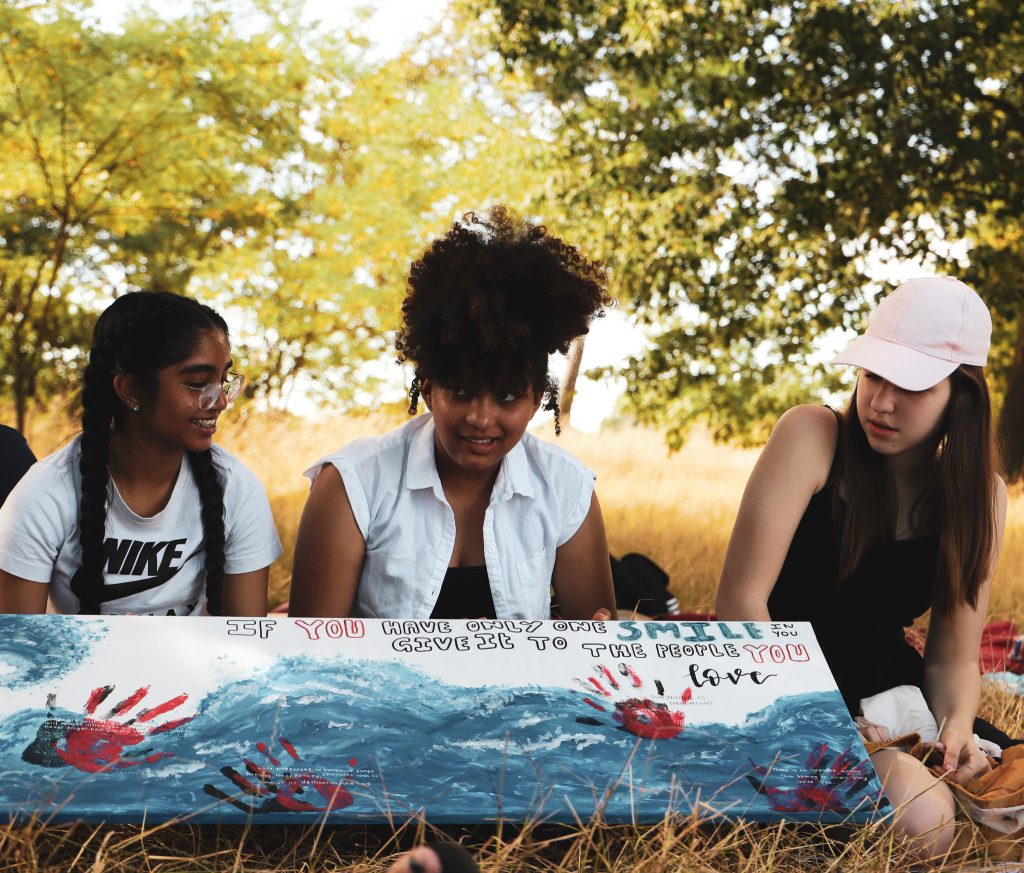
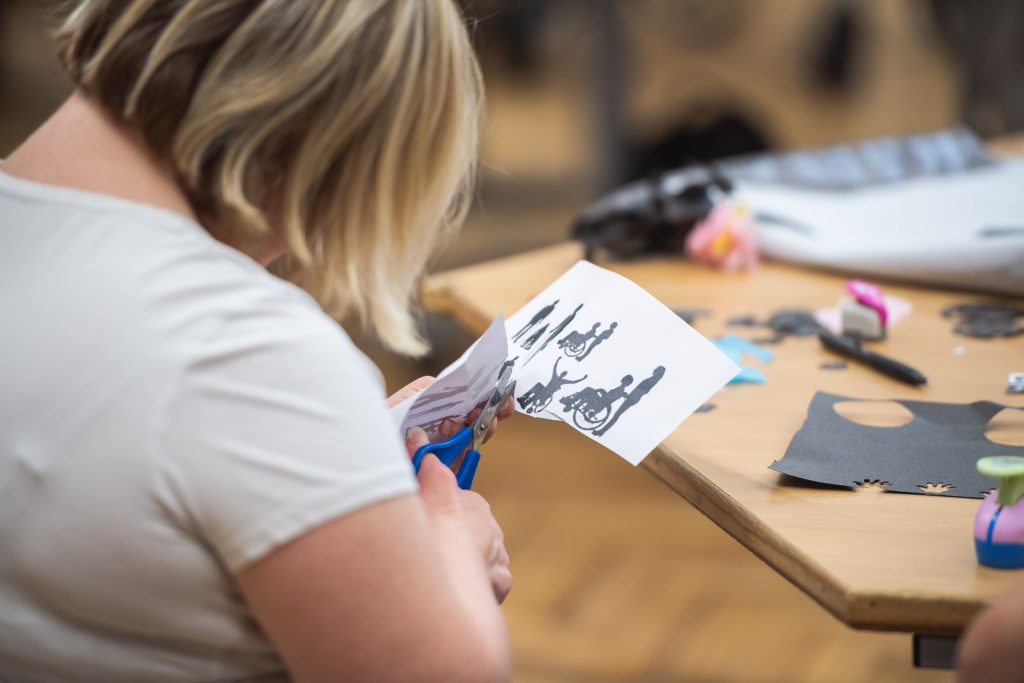
How has COVID changed the way you work?
COVID has of course had an enormous impact. We have worked tirelessly to continue to provide activities for our communities that improve their wellbeing, upskill and empower them and it has required drastic adaption. With our building inaccessible, we have had to work from home and deliver digitally or run restricted COVID-safe programmes in external venues or even outside in parks! We have had to invest in IT, marketing and digital infrastructure and train staff and artists in online and COVID-safe delivery. We are providing a lot more online activities that are totally free, such as our art workshops for people who are shielding, bereaved or unemployed due to COVID, and our Humble Happiness Hub online cookery and art courses for people who are low waged, isolated and live in the most deprived wards in Newham. We have found innovative ways of maintaining engagement, such as sending free materials/ ingredients to people’s houses so that everyone can participate regardless of income. Its definitely helped us enter 2021 with greater resilience and expertise, but it’s not an easy time for charities like ours and so we’re more than ever reliant on different sources of income including private giving.
Tell us about the Young Creative Newham Board.
The Creative Newham Youth Board is made up of a group of young people who are passionate about their local area, and we are currently recruiting for more members to join. It provides opportunities for the members to get involved in real cultural projects that happen in the borough, from commissioning and producing events to managing budgets and having their say on creative developments. Last year they got involved in Newham Heritage Month, a local creative wellbeing space and a covid memorial project in the Olympic Park, and learned skills around production and evaluation. The board is supported by the Mayor of London and aims to give positive life choices to young people in the borough who are at risk of social exclusion. Some quotes from our young people on being involved:
‘Having the position of power to make a difference in people’s lives through the heritage projects and events we have selected, and giving people in Newham an opportunity to express themselves while creating diversity, is very rewarding.’
‘I have acquired an understanding of the things that go on in our community, how to award money to a project and invest carefully to make the most out of what you put in’
What advice would you give young people, particularly those from BAME backgrounds, who are interested in a career in the creative arts?
For many young people choosing a career can be daunting. Choosing one in the creative arts, often without clear career structures or the support of parents and peers, access to relevant information and where there is an under representation of people who look or sound like us, can be even more challenging.
Growing up in East London from a first generation migrant family who had ‘traditional’ careers, I had to rely on the guidance of others to understand where to take the next steps or to even know that I could take them. Mentors have played a big role in my development, and my advice would be to build a support structure around you and seek role models you aspire to, even if those people are not in your immediate circle – it is essential to your success!
Take every opportunity that you can. Don’t let fear stand in your way. You might not know if you are going to enjoy the experience or not but challenges can teach you that you are better than you think are.
'CREATIVITY, COMMUNITY, CHANGE.'
Your motto is ‘Creativity, Community, Change’. What changes do you think Rosetta Arts helps bring in the local community?
Our goal is for Rosetta Arts to transform communities through creativity. As a community hub we offer creative courses, projects, events, exhibitions and a platform to the diverse residents of Newham, so many of who otherwise have little access to the transformative benefits of the arts. We really take the time to get to know people and nurture their creativity and that has a huge ripple effect, putting more artists on the map locally and really just allowing more people to connect with each other and feel good about themselves through art.
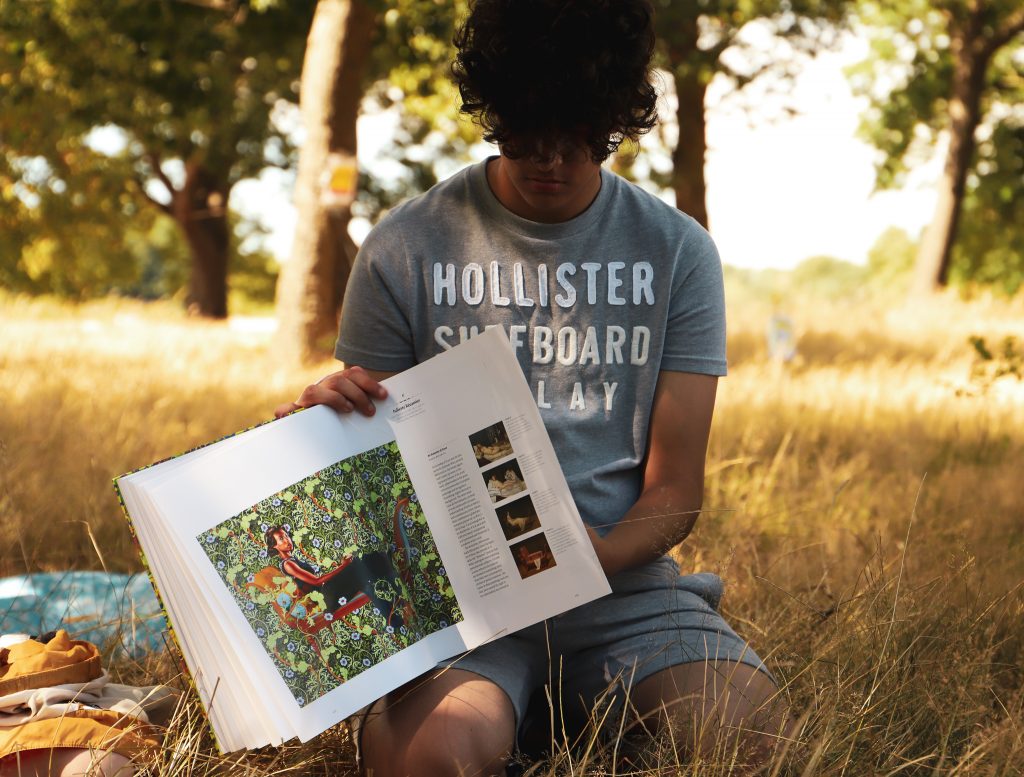
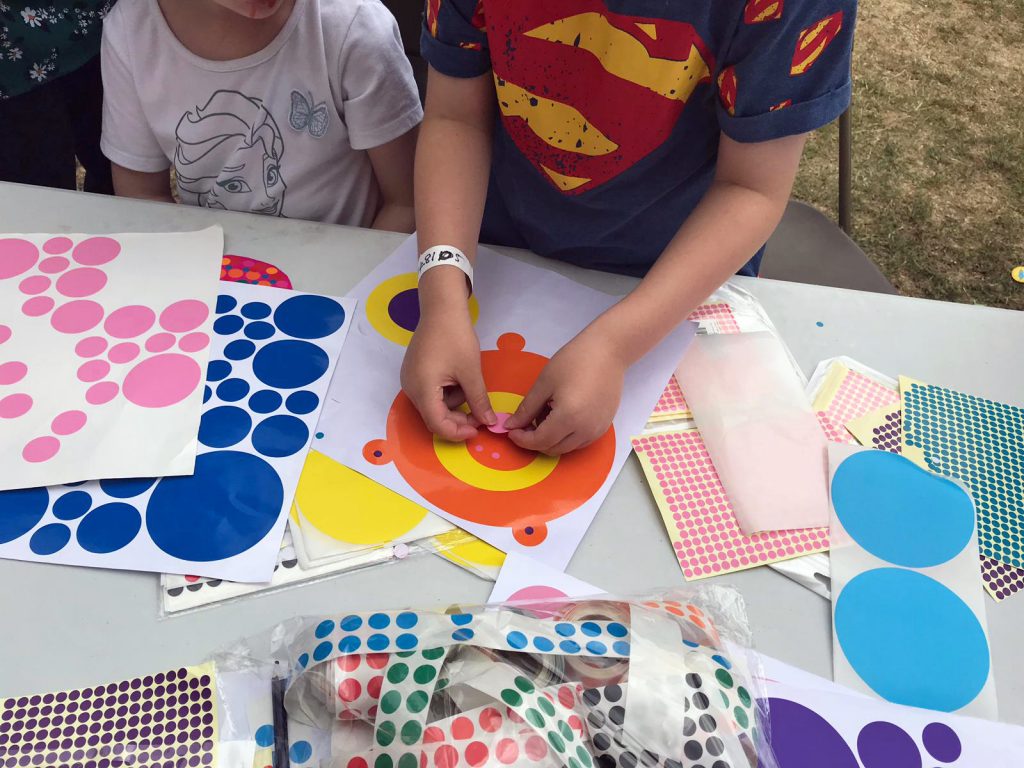
Advice from Rosetta Arts Staff
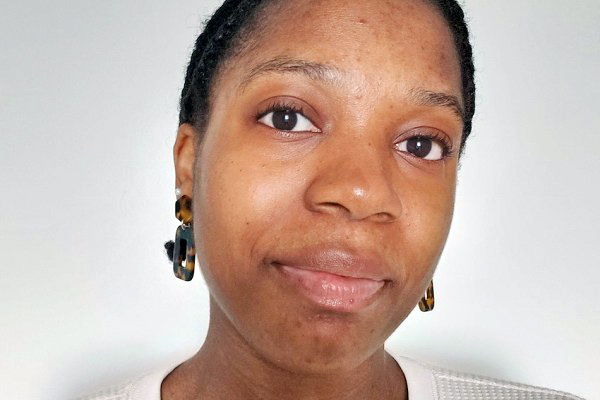
Alannah Francis, Rosetta Arts Marketing Officer
"Pursuing a career in the arts can be challenging but I really believe that if you’re passionate, creative and persistent, you can carve out a space for yourself."
For the majority of my working life, I’ve worked in media as a journalist. I’ve worked at national newspapers in the UK (The Times and The Guardian) and smaller, independent publications.
I started my role as Marketing Officer at Rosetta Arts in 2020. Joining the charity during a pandemic where face-to-face activities have shifted online, I’ve witnessed first-hand how important the arts are to people during such confusing times. In my role I’ve been able to build on my social media and digital skills, which have been in more demand than ever at a time when everyone is online. It’s been great to have the freedom to get creative about how we can reach people, be accessible and stand out in the digital sphere.
The advice I would give to young people, especially those from BAME backgrounds, who are interested in a career in the creative arts is to take advantage of the opportunities that are available to you. There are so many free and affordable activities, courses and clubs that you can get involved in as a young person. These are great ways to explore your passions, experiment and develop skills. All you need to do is look in the right places – and if you can’t find something that caters to you, create it! I would also say, don’t give up. Pursuing a career in the arts can be challenging but I really believe that if you’re passionate, creative and persistent, you can carve out a space for yourself.
I came across Rosetta Arts Centre at the age of 15 joining in their ‘Young Newham Artists’ programme. I learnt so much on the History of Art, planning my art business, drafting a budget plan and communicating with clients on commissions.
I returned to Rosetta Arts after finishing my Fine Art degree at UEL and supported in delivering community art courses, preparing materials and demonstrating to pupils for Saturday School. Writing application proposals for funding and promoting upcoming creative courses to students. These skills led me to a traineeship in Culture and working in Culture and Heritage and becoming a Community Engagement Officer at The British Library.
I am part of the Rosetta Arts Board as a Young Trustee which consist of making decisions in the board meetings, reading through proposals and plans, alongside going through strategies with the board members and CEO.
The advice I would give to young people who are keen in a career in the creative arts is to create a portfolio of varied styles of work. Join in career workshops, many offer advice on how to get started and update your CV. Research into apprenticeships, traineeships, or take up work experience to learn what skills are needed for a specific role.
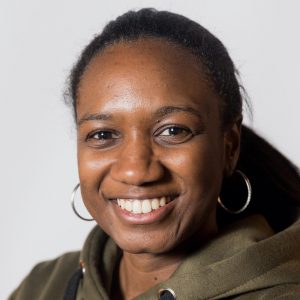
Amber Perrier, Rosetta Arts Young Trustee
"Participate in networking sessions, you will never know who you’ll meet! Do not be afraid to ask questions, you won’t know if you don’t ask!"
Photography courtesy Sylvie Belbouab

